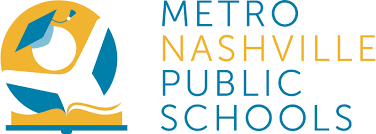Overview
Metro Nashville Public Schools (MNPS) sites already offered deeper intervention support and tutoring during personalized learning time for students with previously identified needs, such as those who are learning English, who have a diagnosed learning difference, or who are identified for specific Tier II and III supports based on response to intervention (RTI). However, leaders realized additional support would be needed to meet the needs of students outside of these programs as well as to improve the quality of one-to-one tutoring overall.
Approach
The district is piloting a new high-dosage tutoring model to provide 1:1 support to students during the school day, with an initial focus on students scoring within the 20th to 80th percentile on MAP assessments. The goals of this pilot is as follows:
Provide an immediate and effective intervention for MNPS students.
Increase tutoring services provided by the district by leveraging internal stakeholders and external partners.
Improve upon existing tutoring programs by helping partners to redevelop their models so that they adhere to research-based evidence.
Utilize the results of the pilots to move towards implementing a comprehensive, impactful, and sustainable tutoring program for all MNPS schools and partners.
For sites participating in the centralized tutoring program, tutoring occurs three times per week for 30 minutes during district-wide personalized learning blocks. In grades 3-5, tutoring is focused on literacy, and in 6-12, tutoring is focused on numeracy. These priority areas are determined based on benchmark data.
To make the program as turnkey as possible for schools wanting that level of support, the district has partnered with TutorNashville (Vanderbilt University) and Pencil (a volunteer organization that previously provided reading supports). All tutors are centrally trained and use district-provided curriculum; logistics are managed by the central office.
“We're trying to handle as much of the logistics for schools so that it’s really simple. All they [the schools] need to do is focus on making sure that the student gets there and support the communication between the teacher and the tutor.” - Dr. Keri Randolph, Executive Officer of Strategic State, Federal and Philanthropic Investments at Metropolitan Nashville Public Schools
For schools with their own programs, the district offers additional training support to ensure practices are research-based.
“We have schools with their own tutoring programs. We're working to provide technical assistance to help move them to this gold standard model that based on research is more impactful than maybe the current model they're using to really supercharge that tutoring experience for kids.” – Dr. Randolph
The district plans to grow the pilot over time, tapping into federal dollars to hire additional tutors as well as build additional partnerships over time. This will allow the team to expand support to more students, grade levels, and subject areas based on needs identified in the data. As Dr. Randolph noted, “I have an equity-based list. And as we get increased capacity for tutors, we will kind of go down the list of who's next.”
This strategy is a part of TLA's Hop, Skip, Leapfrog release, which explores the concrete ways in which schools and systems pursued student-centered innovation during COVID-19. Explore the full guide to find additional strategies, insights, and resources.
Strategy Resources
Accelerating Student Learning with High-Dosage Tutoring
This research brief, created by the Annenberg Institute at Brown University offers an overview of... Learn More
